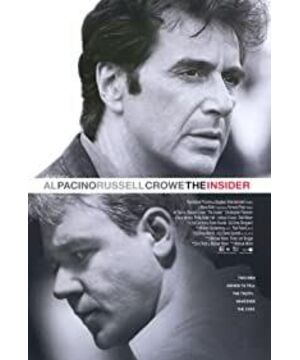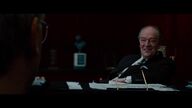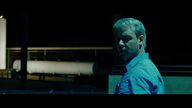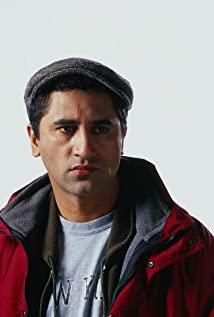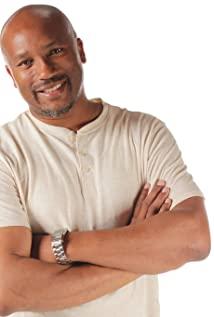directing is excellent, the acting is excellent, and it is rare to watch the blood boil without a hail of bullets. The film is
about ideology: In a highly market-oriented society like the United States, people are an economic animal, the relationship between people is to do business, and the value of people can only be measured by money, social welfare, medical insurance, car loans, housing Loans... If you lose these, you lose everything, including human dignity. Everywhere in the film questioning such a society is questioning the foundation of the United States. Under the enticement of the big consortium, the government sued the prosecutor in the court - the separation of powers, which eventually became a tool for money.
Regarding morality and law: In a society that only talks about interests, it is necessary to limit human behavior through contractual relationships. In the name of human rights, citizens are also endowed with immoral power, so the law becomes the only coercive force to maintain the normal operation of the economy and society. But is the law omnipotent? The film raises doubts because both protagonists end up breaking the law, but in order to get justice. Does a civilized society really only need rules and not morality?
In fact, another soft but powerful force is religion, which doesn't seem to be covered in this film.
About freedom of the press: Press and public opinion is called the "fourth force" besides the executive, legislative and judicial powers. However, the film has given a heavy blow - "press freedom? Only the boss has freedom of the press!", Al Pacino said piercingly. The film finally pinned its hopes on the professional ethics of journalists, which has actually become a paradox in the economic society.
In addition, the lawyer's sentence: "If I say that public opinion is not very important to the court, then I am lying." Recently, China has often called for public opinion not to affect judicial trials. The relationship between judicial justice and public opinion is also an issue that needs to be discussed.
About humanity, loyalty and betrayal: the two protagonists of the film are caught in a dilemma one after another. Either choose silence, because citizens have immoral power, but in this way they will betray their conscience, their beliefs, and their promises to friends; or choose to fight, but in this way they will betray their superiors and their commitment to nondisclosure agreements. To keep, betray the law, to the point of ruin, to pay the price of life.
"Gladiator" Russell Crowe plays a conscientious middle-class American, reminiscent of Rousseau's definition of a person: weak, lonely, and full of fear. Although Al Pacino appears as a hero most of the time, his wife saves him when he fights alone until he falls into despair and confusion. The other hand in the cold night may be the warmest force in this world.
View more about The Insider reviews


